This year marks the 150th anniversary of Abraham Lincoln’s Gettysburg Address. On October 22nd Lincoln scholar Douglas L. Wilson delved into the address during his visit with the Lincoln Group of the District of Columbia (LGDC). Wilson is the co-Director of Knox College Lincoln Studies Center located in Galesburg, Illinois, site of one of the famous Lincoln-Douglas debates. It was a great event. Even CSPAN was there.
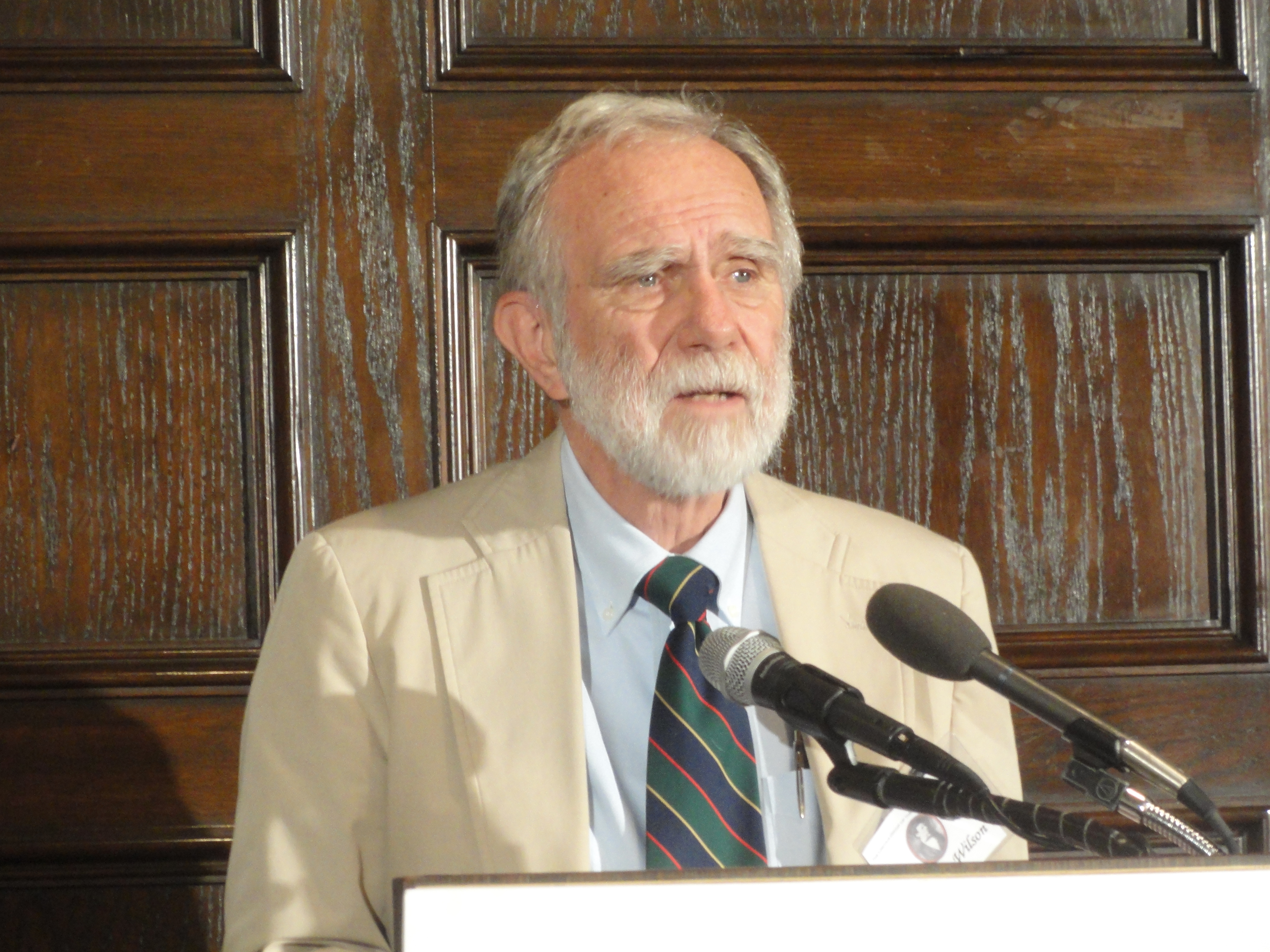
While we are all familiar with the Gettysburg Address – most of us probably had to memorize the “Four score and seven years ago” speech in high school – most people don’t know that there are five versions written in Lincoln’s hand. And they aren’t all the same. Remember that there were no photocopying machines in 1863 so Lincoln actually had to write out each copy with pen and ink. [Read more about the various copies here]
One major difference that Douglas talked about is a sentence that was in the Nicolay version – believed to be the earliest draft – and all of the other versions. The Nicolay version includes the following line:
“This we may, in all propriety do.”
Hmmm, not very inspiring, is it. Luckily for posterity Lincoln removed the sentence and replaced it with the more familiar:
“It is altogether fitting and proper that we should do this.”
Much better.
Some have argued that the Nicolay copy is the version that Lincoln read from when delivering the address on November 19, 1863. Wilson notes that this is unlikely because of the above and a few other changes. The Hay version more closely tracks the two supposedly verbatim transcriptions of the address taken by reporters at the time of the speech. The other copies were made at the request of Edward Everett (the actual keynote speaker at Gettysburg), George Bancroft, and Col. Alexander Bliss. There are only minor differences in these copies. The Bliss copy currently resides in the White House while the Nicolay and Hay copies are at the Library of Congress.
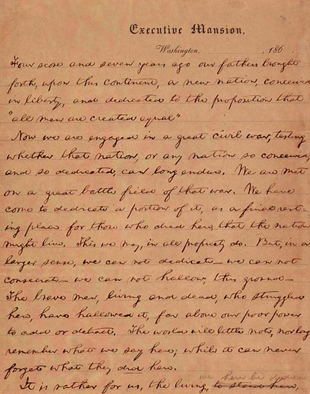
Wilson offered many other insights into the Gettysburg Address and took many questions from the Lincoln Group attendees. Prior to dinner Wilson signed three of his books that I had brought from my collection. One of his books, edited along with Rodney O. Davis (his co-Director at the Lincoln Studies Center), is Herndon’s Lincoln, an updated and annotated version of the book William H. Herndon, Lincoln’s law partner, had published in 1889). I have a first edition of Herndon’s three-volume set, but Wilson and Davis’ annotated version is much more valuable as a research tool. Often I’ll read a story that Herndon’s informants had told him about Lincoln’s past, only to find out in the notes that the story may not actually be supported by fact. It is this kind of scholarly work that makes study of Abraham Lincoln so fruitful, even after the 15,000 volumes on the man that are estimated to exist.
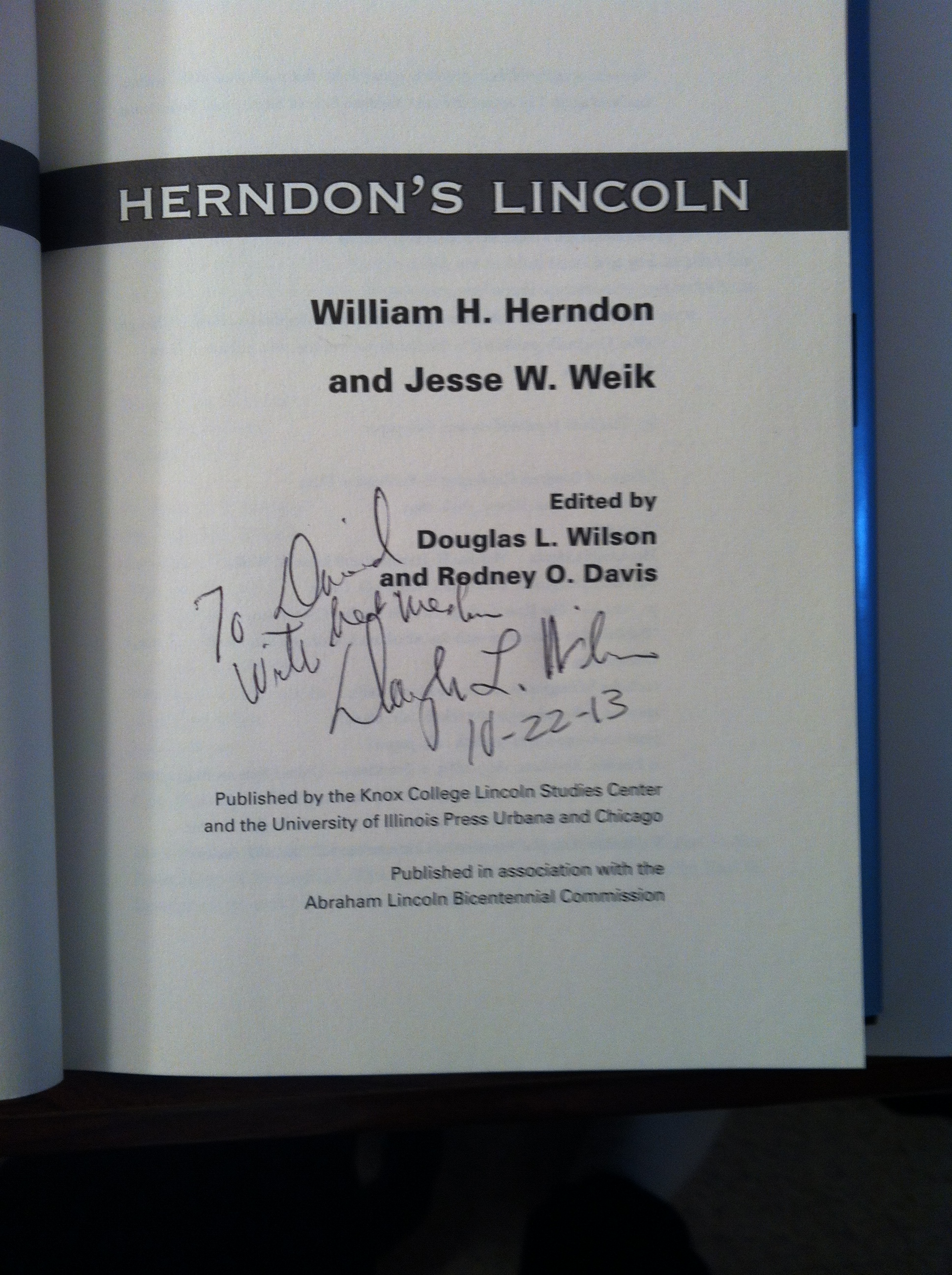
I highly recommend Douglas L. Wilson‘s other books as well, Herndon’s Informants, Honor’s Voice, and Lincoln’s Sword. Thanks to Wilson and the LGDC, I not only have more insight into the Gettysburg Address, I have three new signatures in books on my shelves.
The full Douglas L. Wilson presentation at the Lincoln Group of DC is now available on C-SPAN.
David J. Kent is the author of Lincoln: The Man Who Saved America, now available. His previous books include Tesla: The Wizard of Electricity and Edison: The Inventor of the Modern World (both Fall River Press). He has also written two e-books: Nikola Tesla: Renewable Energy Ahead of Its Time and Abraham Lincoln and Nikola Tesla: Connected by Fate.
Check out my Goodreads author page. While you’re at it, “Like” my Facebook author page for more updates!
Follow me by subscribing by email on the home page. Share with your friends using the buttons below.
Like this:
Like Loading...
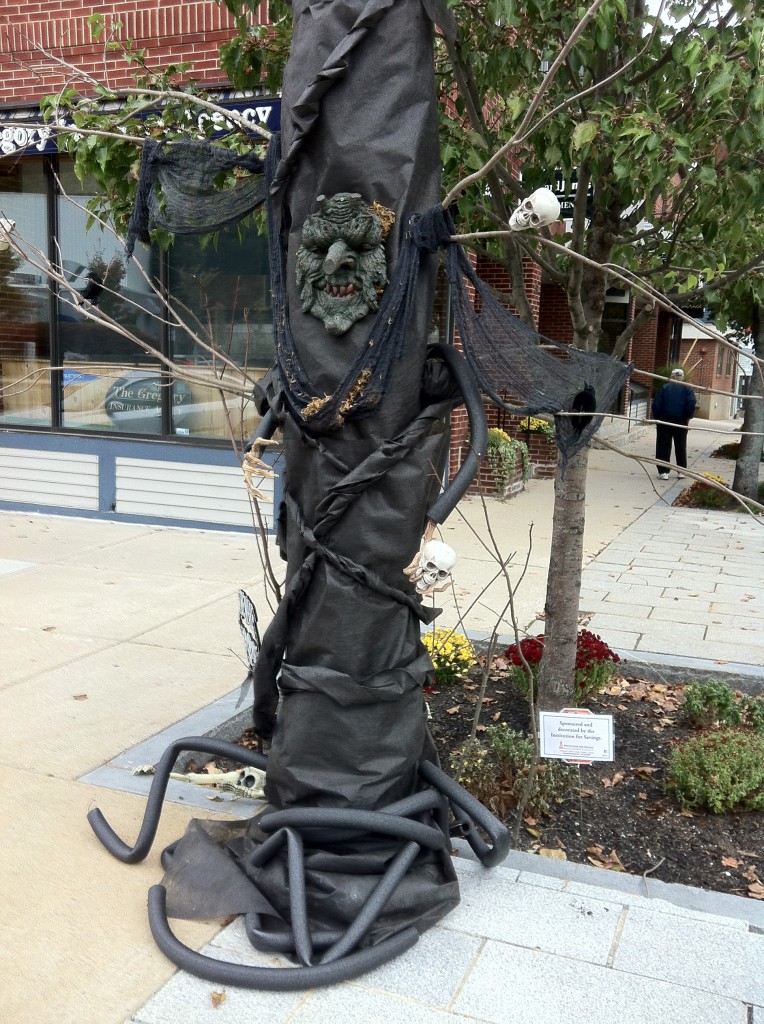
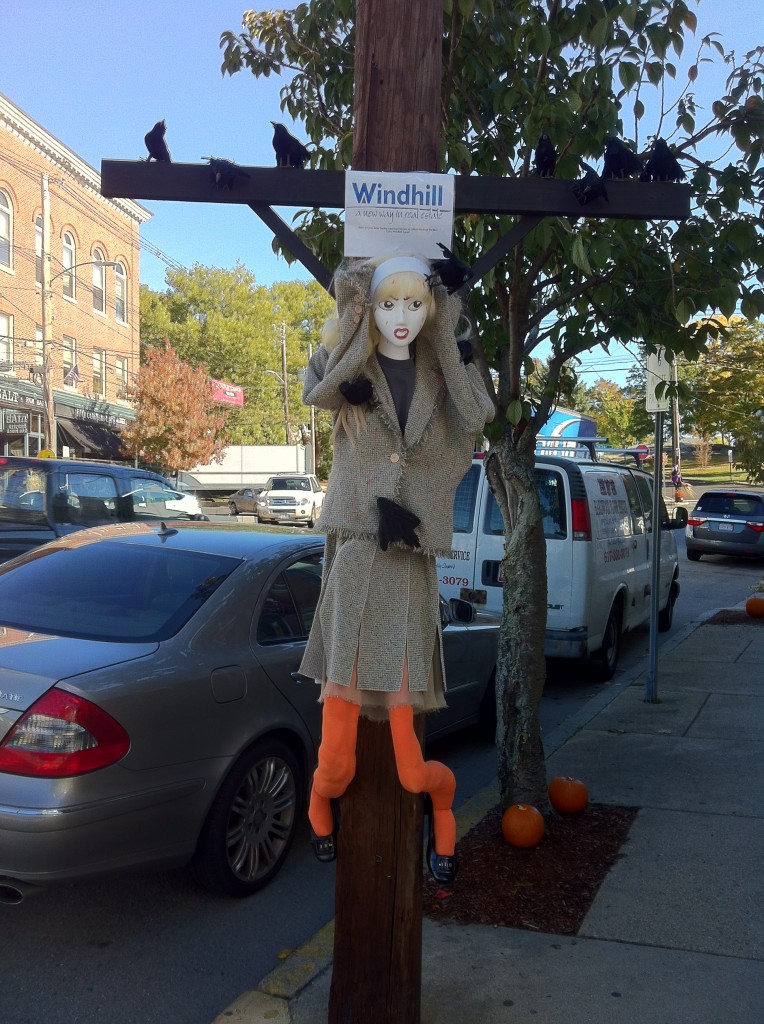
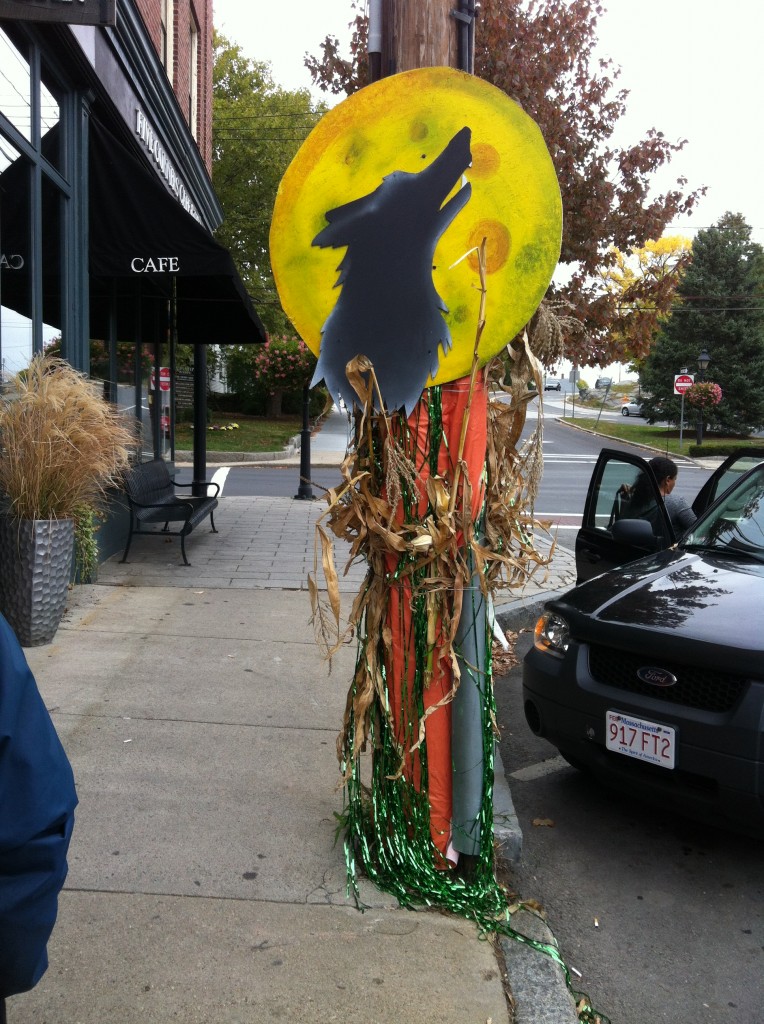
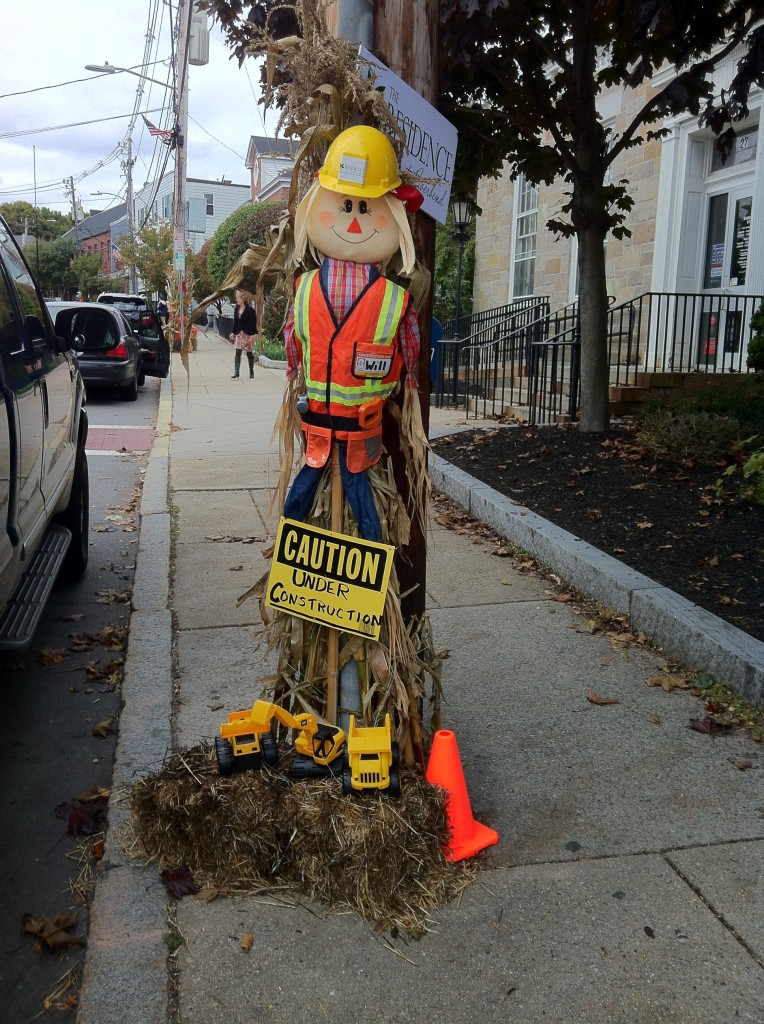
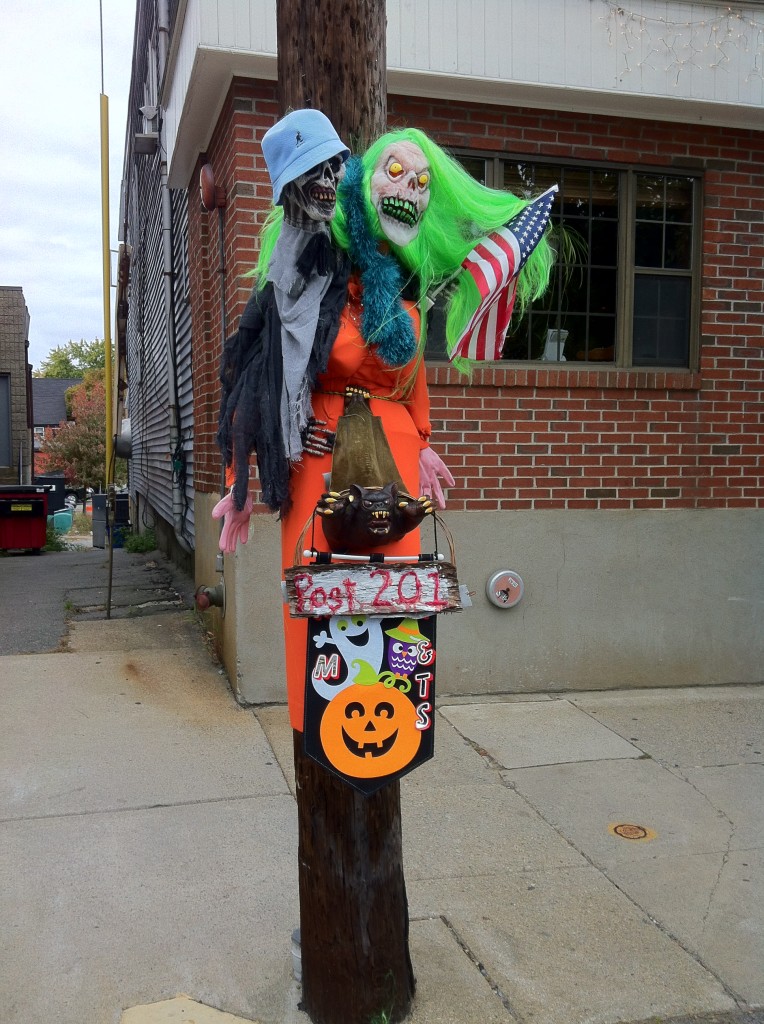
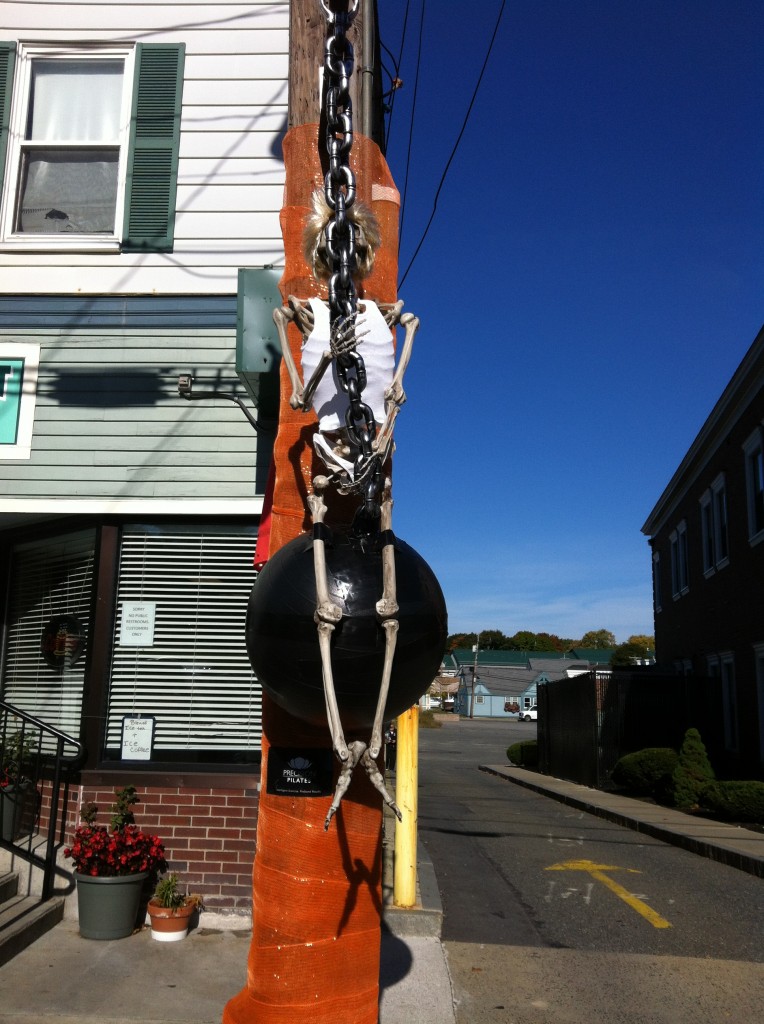
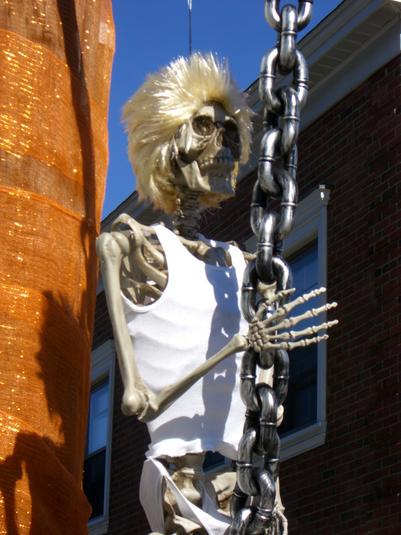
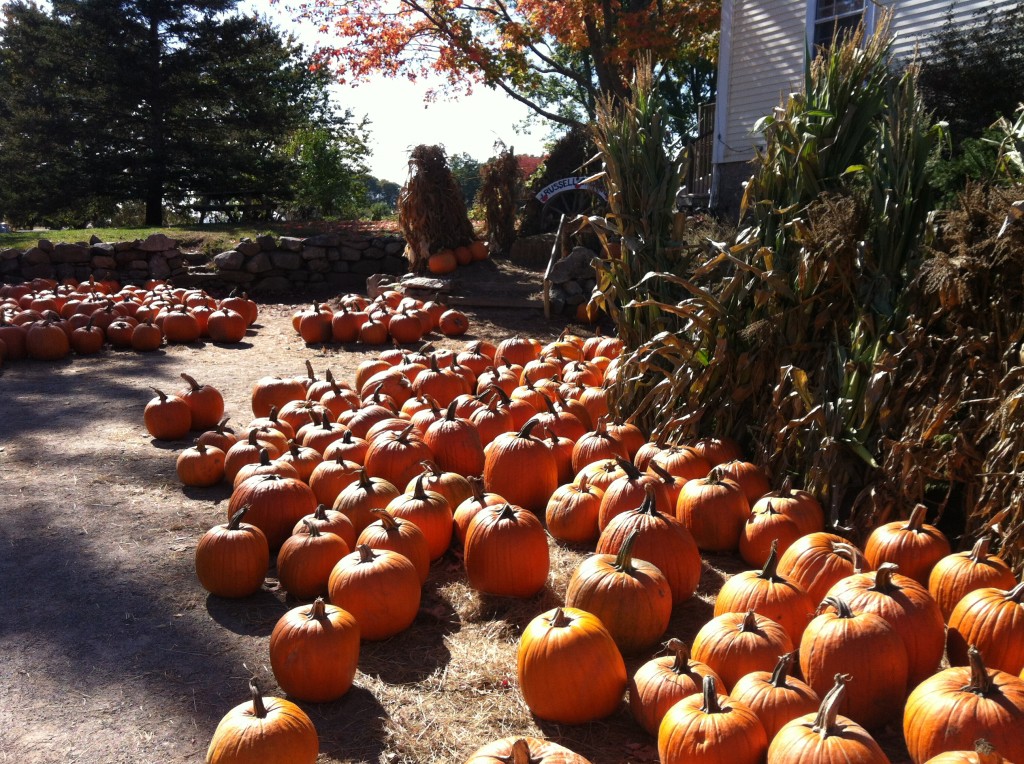
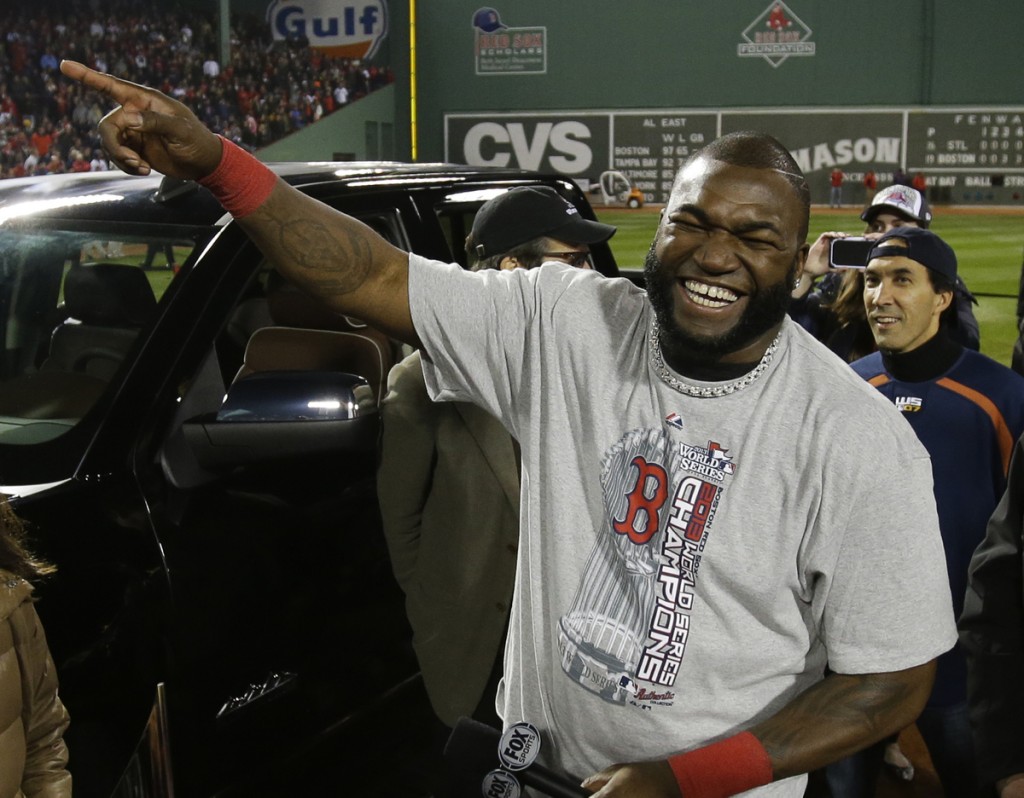



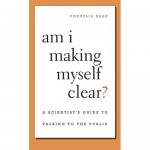 Am I Making Myself Clear? A Scientist’s Guide to Talking to the Public is a much needed book for scientific and non-scientific communities alike. Written by science writer (and former New York Times editor) Cornelia Dean, the book makes the case that scientists need to make “their work more accessible to the media, and thus to the public.” This doesn’t come naturally to most scientists, and so the book gives some practical tips on how scientists can accomplish this goal.
Am I Making Myself Clear? A Scientist’s Guide to Talking to the Public is a much needed book for scientific and non-scientific communities alike. Written by science writer (and former New York Times editor) Cornelia Dean, the book makes the case that scientists need to make “their work more accessible to the media, and thus to the public.” This doesn’t come naturally to most scientists, and so the book gives some practical tips on how scientists can accomplish this goal.


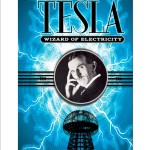 For those in the Philadelphia/Exton area, there is an upcoming Tesla “Book, Film and Art” event presented by members of the Tesla Science Foundation. The event is hosted by Howard Lipman, a Chester County Author, Radio Host Mark Passio. There will also be presentations by other Tesla Foundation members on “Why Nikola Tesla Matters”, and how Tesla has been an influence in Books, Film and Art.
For those in the Philadelphia/Exton area, there is an upcoming Tesla “Book, Film and Art” event presented by members of the Tesla Science Foundation. The event is hosted by Howard Lipman, a Chester County Author, Radio Host Mark Passio. There will also be presentations by other Tesla Foundation members on “Why Nikola Tesla Matters”, and how Tesla has been an influence in Books, Film and Art.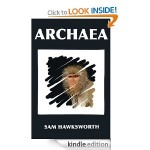
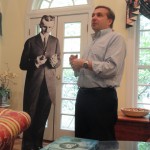 I’m writing this in between packing for my trip and finishing up the 103 and a 1/2 things on my “do before my trip” list. So this will be quick.
I’m writing this in between packing for my trip and finishing up the 103 and a 1/2 things on my “do before my trip” list. So this will be quick.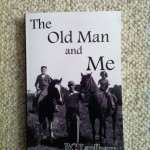 The Old Man and Me
The Old Man and Me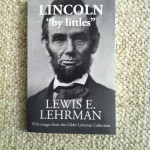 Periodically on this site I provide reviews of books about Abraham Lincoln. This is a review of Lincoln “by littles” by Lewis E. Lehrman, published by The Lehrman Institute in 2013.
Periodically on this site I provide reviews of books about Abraham Lincoln. This is a review of Lincoln “by littles” by Lewis E. Lehrman, published by The Lehrman Institute in 2013.






